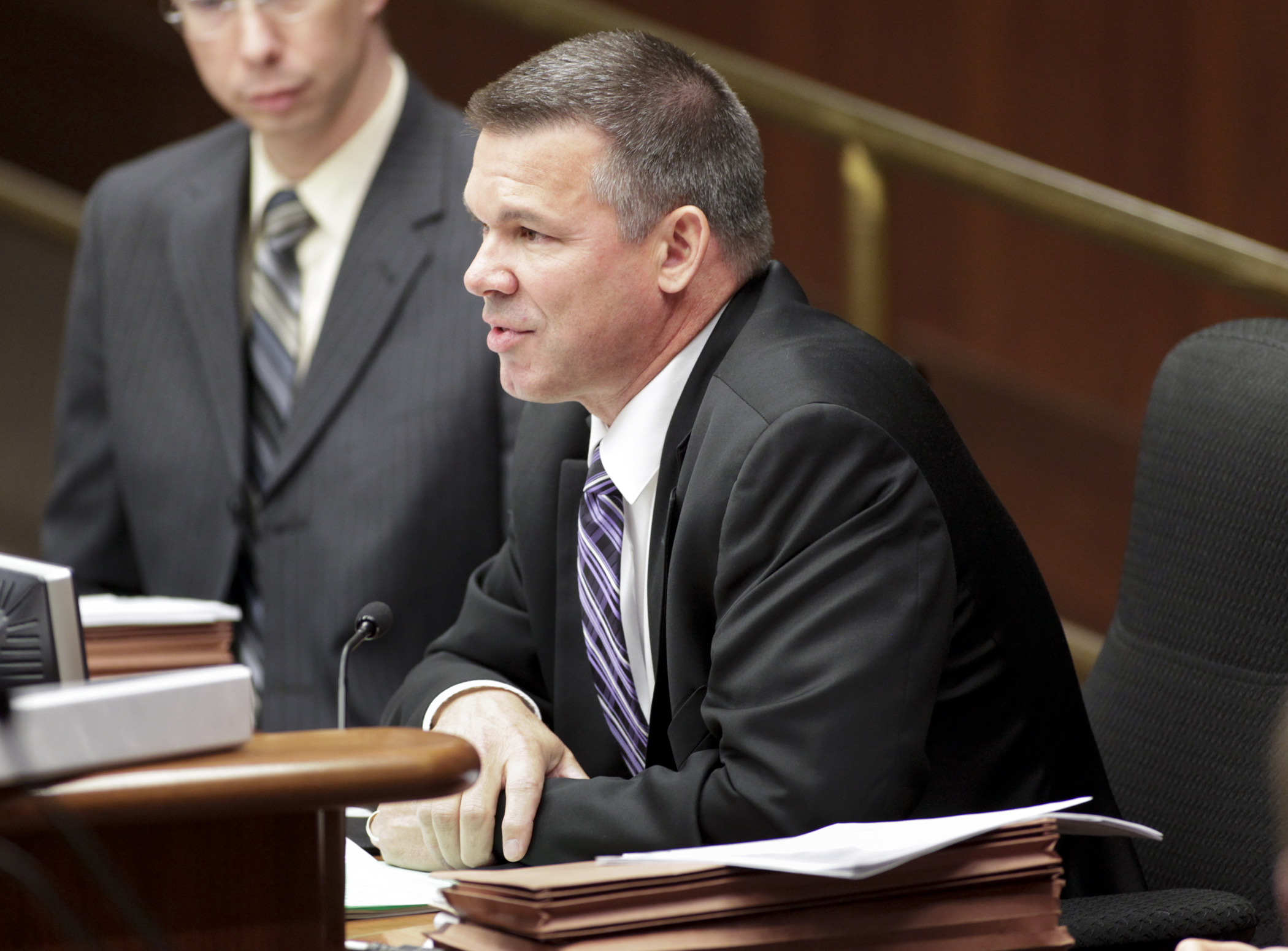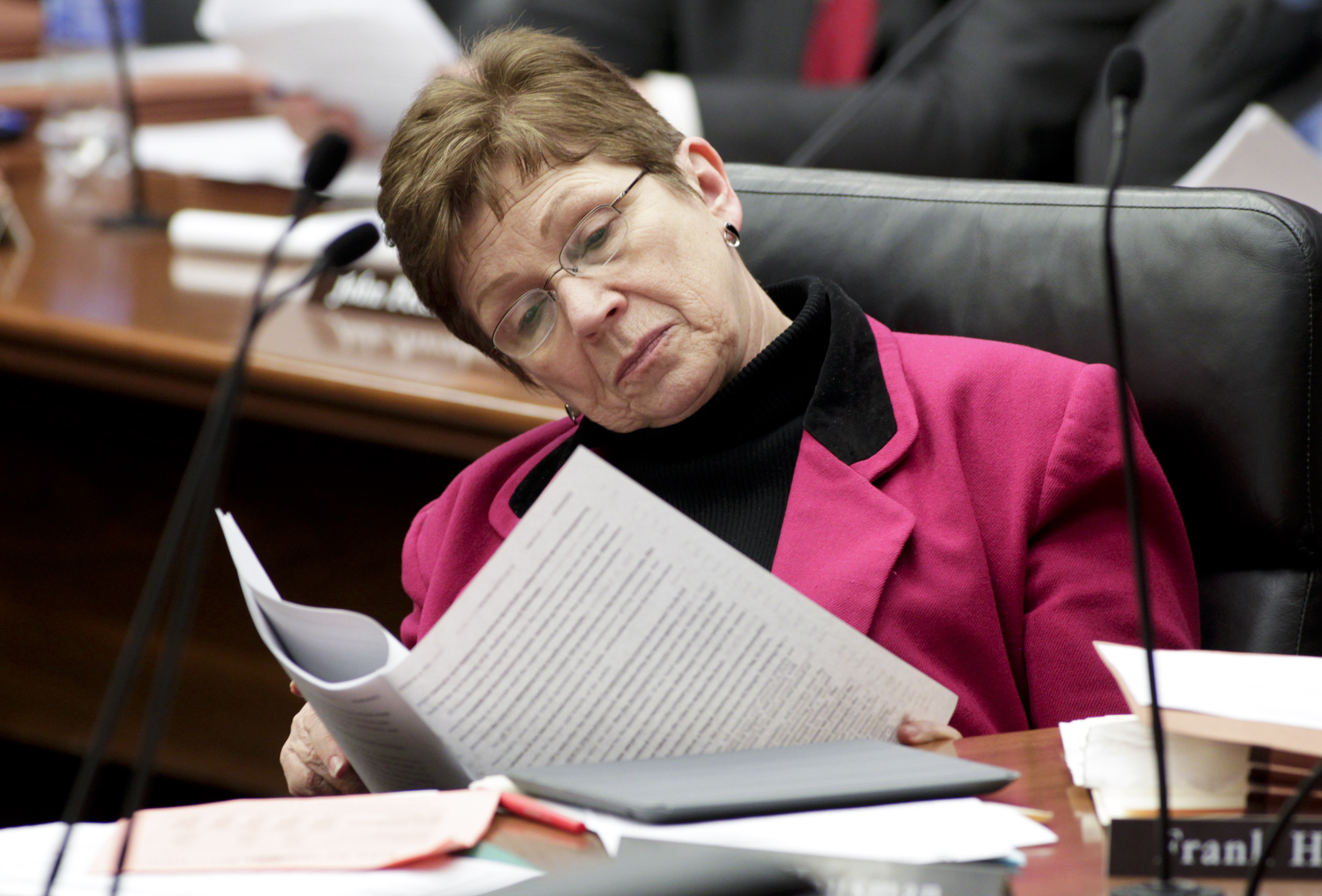House starts its work on omnibus transportation package

More than $600 million in new General Fund dollars would be used to fix Minnesota’s roads and bridges over the next two years under an omnibus transportation bill that its sponsor says represents a sustainable transportation funding plan — but that critics have said relies on shifts instead of new, stable revenues.
HF4, as proposed to be amended, represents the particulars of a sweeping plan to increase transportation spending by $7 billion over 10 years that was unveiled by House Republicans late last month. It would inject new funding into the state’s transportation infrastructure by utilizing existing state revenues in lieu of new taxes.
Sponsored by Rep. Tim Kelly (R-Red Wing), chair of the House Transportation Policy and Finance Committee, the omnibus transportation bill would shift $412 million in revenues from vehicle-related sales taxes on things like motor vehicle rentals and repair parts from the state’s General Fund into a “Transportation Stability Fund” to be used on road and bridge maintenance across the state. The bill would carry forward $228 million of the projected budget surplus to fund local highways and transit in Greater Minnesota.
Heard Wednesday by the committee, Kelly said the House has worked to “understand where we’re at, and understand the needs, and to put together a sustainable transportation package.”
 Rep. Alice Hausman follows along April 8 during a presentation of the omnibus transportation bill, HF4, to the House Transportation Policy and Finance Committee. Photo by Paul Battaglia
Rep. Alice Hausman follows along April 8 during a presentation of the omnibus transportation bill, HF4, to the House Transportation Policy and Finance Committee. Photo by Paul BattagliaThe committee took no action, but is scheduled to hear testimony Thursday. A vote on the package could come as early as Monday. There is no Senate companion.
It is a bill focused decidedly on roads, not rails.
The proposal would phase out General Fund appropriations to the Metropolitan Council for transit operations and maintenance, eliminate a half-million dollar annual base appropriation from the General Fund to the Department of Transportation for commuter and passenger rail, and require legislative approval of planning for future transit lines, among other changes.
Both Gov. Mark Dayton and DFLers in control of the Senate Transportation and Public Safety Committee have pitched plans that would introduce a new wholesale tax on fuel in addition to raising the state’s existing gas tax, and an increased metro-area sales tax to fund transit projects.
Critics have said the Republican plan shifts existing state dollars to transportation from other needs like education, and doesn’t establish a reliable dedicated source of increased funding.
What would HF4 do?
The bill includes measures that would:
- establish a program for aid to cities under 5,000 that are not eligible to receive municipal state-aid street funds;
- appropriate $1.5 million in both fiscal years 2016 and 2017 for grants to suburban transit providers to operate a demonstration project for service between suburban communities;
- phase out roughly $20 million over the biennium in General Fund appropriations to the Metropolitan Council for transit operations;
- authorize $1.3 billion in trunk highway bonding for fiscal years 2016-22 and appropriate $125 million annually to the Corridors of Commerce program, $5 million to the Transportation Economic Development program and $70 million for general state road construction;
- require all light rail transit operating and maintenance costs not covered by operating revenue and federal funds to come from non-state sources;
- create a pilot program for public-private partnerships between MnDOT or the Metropolitan Council and private entities;
- create vehicle weight limit exemptions that apply to vehicles that service portable toilets; and
- expand special permits for six- and seven-axle vehicles carrying an array of products that includes unprocessed agricultural goods, livestock and poultry feed and highway and building construction materials.
What’s in the bill?
The following House files are included in HF4:
HF195 (Runbeck); HF215 (Howe); HF293 (Sanders); HF526 (McNamara); HF533 (Nash): HF558 (Howe); HF620 (McNamara); HF710 (Koznick); HF815 (Dill); HF847 (Kelly): HF899 (Runbeck): HF901 (Hancock); HF917 (Nornes); HF1159 (Nash); HF1160 (Sanders): HF1415 (Torkelson); HF1450 (Drazkowski); HF1495 (Green); HF1525 (Loon); HF1526 (Albright); HF1573 (Koznick); HF1596 (Hornstein); HF1646 (Schoen); HF1715 (Kelly); HF1733 (Kelly); HF1744 (Ward); HF1827 (Nornes); HF1822 (Drazkowski); HF1856 (Fenton); HF1866 (Petersburg); HF1924 (Kelly); HF1903 (Hornstein); HF2053 (Theis)
Related Articles
Search Session Daily
Advanced Search OptionsPriority Dailies
Ways and Means Committee OKs proposed $512 million supplemental budget on party-line vote
By Mike Cook Meeting more needs or fiscal irresponsibility is one way to sum up the differences among the two parties on a supplemental spending package a year after a $72 billion state budg...
Meeting more needs or fiscal irresponsibility is one way to sum up the differences among the two parties on a supplemental spending package a year after a $72 billion state budg...
Minnesota’s projected budget surplus balloons to $3.7 billion, but fiscal pressure still looms
By Rob Hubbard Just as Minnesota has experienced a warmer winter than usual, so has the state’s budget outlook warmed over the past few months.
On Thursday, Minnesota Management and Budget...
Just as Minnesota has experienced a warmer winter than usual, so has the state’s budget outlook warmed over the past few months.
On Thursday, Minnesota Management and Budget...